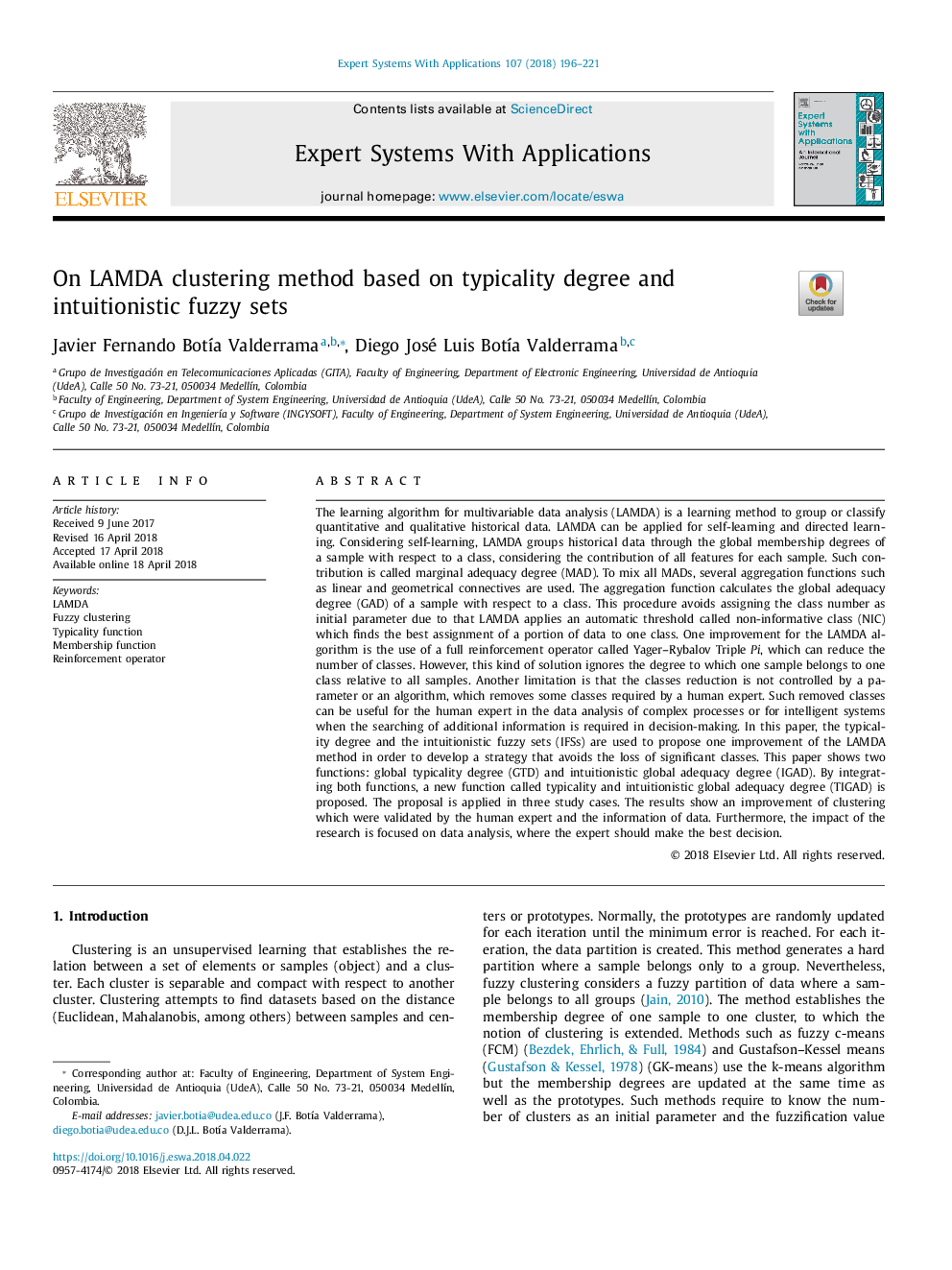| کد مقاله | کد نشریه | سال انتشار | مقاله انگلیسی | نسخه تمام متن |
|---|---|---|---|---|
| 6854927 | 1437599 | 2018 | 26 صفحه PDF | دانلود رایگان |
عنوان انگلیسی مقاله ISI
On LAMDA clustering method based on typicality degree and intuitionistic fuzzy sets
دانلود مقاله + سفارش ترجمه
دانلود مقاله ISI انگلیسی
رایگان برای ایرانیان
موضوعات مرتبط
مهندسی و علوم پایه
مهندسی کامپیوتر
هوش مصنوعی
پیش نمایش صفحه اول مقاله

چکیده انگلیسی
The learning algorithm for multivariable data analysis (LAMDA) is a learning method to group or classify quantitative and qualitative historical data. LAMDA can be applied for self-learning and directed learning. Considering self-learning, LAMDA groups historical data through the global membership degrees of a sample with respect to a class, considering the contribution of all features for each sample. Such contribution is called marginal adequacy degree (MAD). To mix all MADs, several aggregation functions such as linear and geometrical connectives are used. The aggregation function calculates the global adequacy degree (GAD) of a sample with respect to a class. This procedure avoids assigning the class number as initial parameter due to that LAMDA applies an automatic threshold called non-informative class (NIC) which finds the best assignment of a portion of data to one class. One improvement for the LAMDA algorithm is the use of a full reinforcement operator called Yager-Rybalov Triple Pi, which can reduce the number of classes. However, this kind of solution ignores the degree to which one sample belongs to one class relative to all samples. Another limitation is that the classes reduction is not controlled by a parameter or an algorithm, which removes some classes required by a human expert. Such removed classes can be useful for the human expert in the data analysis of complex processes or for intelligent systems when the searching of additional information is required in decision-making. In this paper, the typicality degree and the intuitionistic fuzzy sets (IFSs) are used to propose one improvement of the LAMDA method in order to develop a strategy that avoids the loss of significant classes. This paper shows two functions: global typicality degree (GTD) and intuitionistic global adequacy degree (IGAD). By integrating both functions, a new function called typicality and intuitionistic global adequacy degree (TIGAD) is proposed. The proposal is applied in three study cases. The results show an improvement of clustering which were validated by the human expert and the information of data. Furthermore, the impact of the research is focused on data analysis, where the expert should make the best decision.
ناشر
Database: Elsevier - ScienceDirect (ساینس دایرکت)
Journal: Expert Systems with Applications - Volume 107, 1 October 2018, Pages 196-221
Journal: Expert Systems with Applications - Volume 107, 1 October 2018, Pages 196-221
نویسندگان
Javier Fernando BotÃa Valderrama, Diego José Luis BotÃa Valderrama,